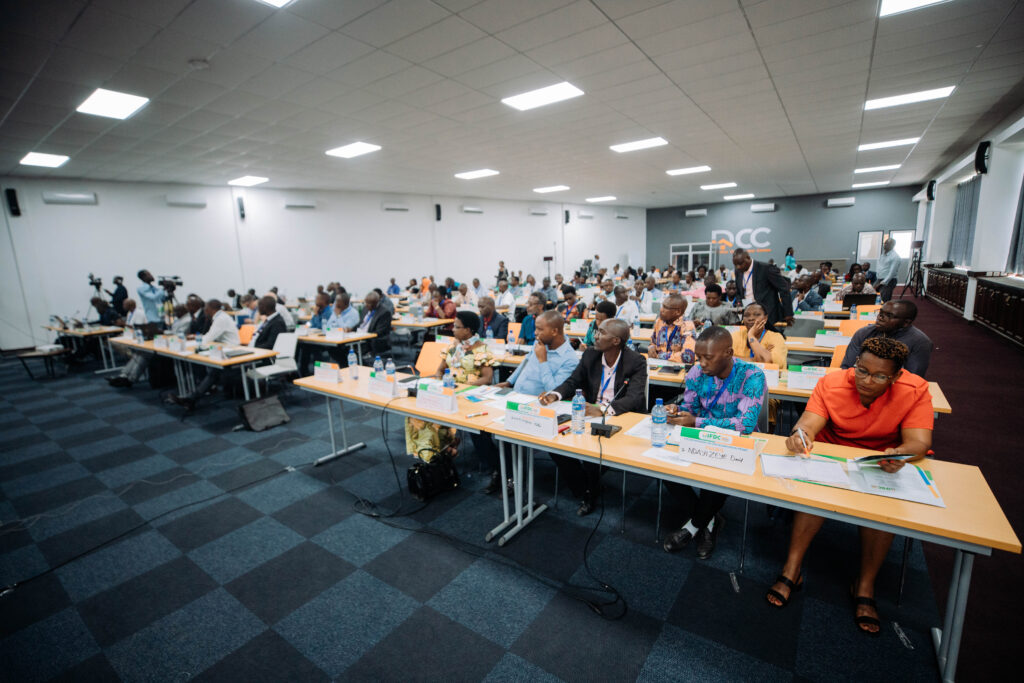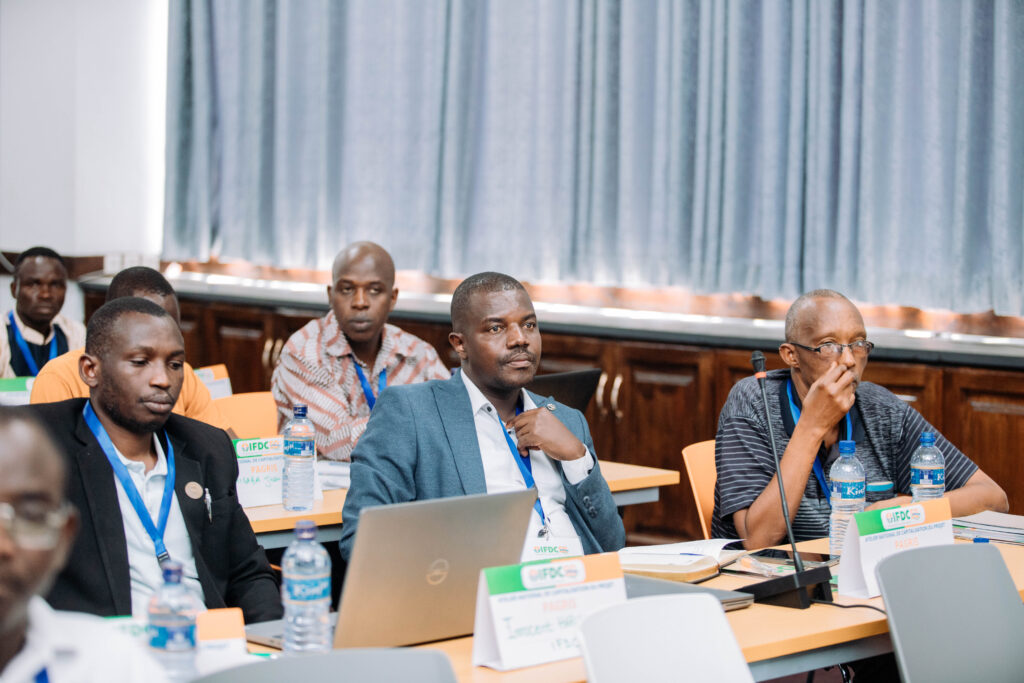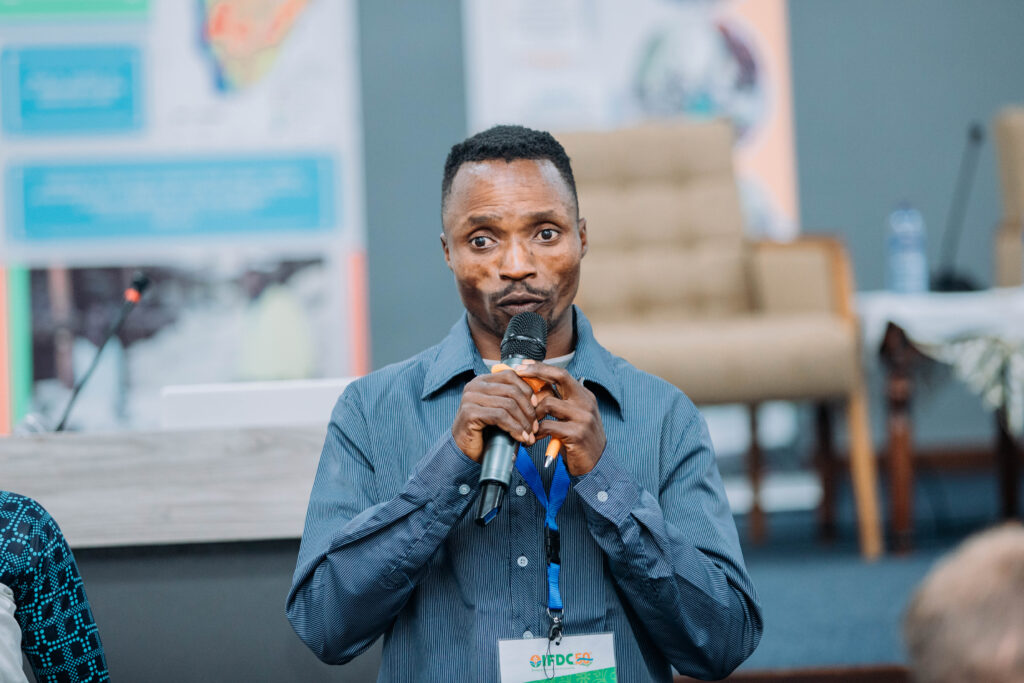
In order to highlight the innovative activities of the Soil Fertility Stewardship Project (PAGRIS), IFDC Burundi organized a national learning workshop on June 21 in Bujumbura.
With its theme “Healthy soils for sustainable food and nutrition security and increased income,” the event highlighted the achievements and lessons learned from the implementation of PAGRIS, encouraging constructive exchange and communication.
Attendees of the workshop included direct and indirect partners of PAGRIS, such as representatives from the government and private sector, and organizations such as the European Union, the International Fund for Agricultural Development (IFAD), SNV, ZOA, and One Acre Fund-TUBURA, as well as multiple universities and research institutions.
During the presentation of project results, PAGRIS team leader Micaël Beun highlighted the project’s success, made possible by collaborations with community leaders, including research farmers and site committee members, who serve as important links between the project and the community.
These collaborations led to partner farmers establishing 834 demonstration plots covering 20,995 hectares. This initiative reached an additional 94,250 farmers and significantly boosted production following the adoption of effective agricultural practices

The research farmers actively spread their knowledge through farmer-to-farmer training sessions and by sharing insights during farmer field days. They establish demonstration plots across various sites, which serve as practical learning tools for farmer groups. In turn, participants from each site train 10 additional farmers, significantly enhancing the adoption of good agricultural practices.
“The success of PAGRIS stems from our participatory approach, which creates a sense of ownership within the community.”
Micaël Beun, PAGRIS team leader
“Starting from the household level and extending all the way to the site and hill levels, this structure has enabled us to undertake various community-focused activities. These include continuous site development, establishing forests and agroforestry nurseries, rehabilitating neighborhood paths, implementing irrigation micro-projects, and more,” remarked Beun.
Vincent Bukuru, a Burundian farmer, shared his excitement over his improved harvests. “Before PAGRIS, I farmed traditionally, neglecting the importance of manuring, soil liming, and erosion control. Now, thanks to the project, 2 to 3 kg of bean or maize seeds yield around 100 kg. Previously, I struggled to produce even a 50kg bag,” he explained.

The event emphasized that Burundi must maximize its production potential to feed its growing population, a feat that is achievable only if the soil conditions are optimal for crop productivity. The reiteration of the workshop’s theme was highlighted as PAGRIS was shown to reflect highly in IFDC’s commitment to fostering healthy soils for sustainable food security around the globe.
Launched for a four-year period in March 2020 through the support of the Embassy of the Kingdom of the Netherlands in Burundi, the Soil Fertility Stewardship Project (PAGRIS) focuses on sustainable increases in production, technical support for institutions in technology development, environmental protection, and the dolomite pilot project. PAGRIS aims to reach 100,000 family farms and establish ecologically sustainable management on 14,000 hectares of land by scaling the Integrated Farm Planning (PIP) approach.





